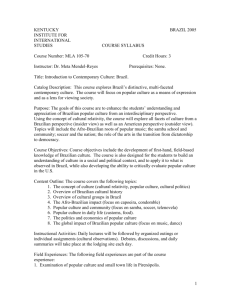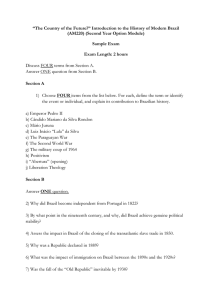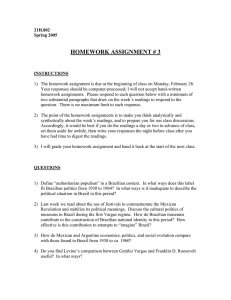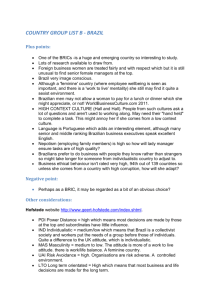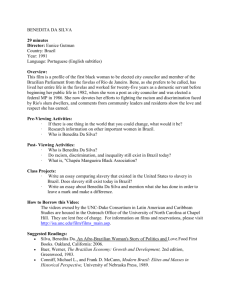Amauri Queiroz Institute Palmares of Human Rights
advertisement
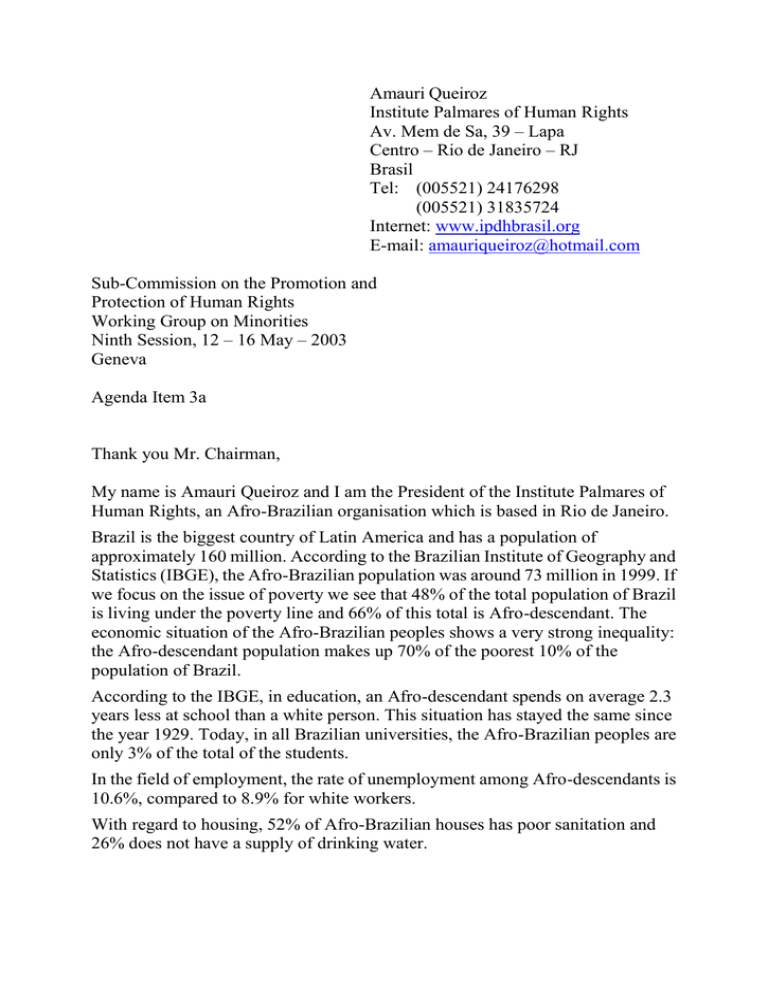
Amauri Queiroz Institute Palmares of Human Rights Av. Mem de Sa, 39 – Lapa Centro – Rio de Janeiro – RJ Brasil Tel: (005521) 24176298 (005521) 31835724 Internet: www.ipdhbrasil.org E-mail: amauriqueiroz@hotmail.com Sub-Commission on the Promotion and Protection of Human Rights Working Group on Minorities Ninth Session, 12 – 16 May – 2003 Geneva Agenda Item 3a Thank you Mr. Chairman, My name is Amauri Queiroz and I am the President of the Institute Palmares of Human Rights, an Afro-Brazilian organisation which is based in Rio de Janeiro. Brazil is the biggest country of Latin America and has a population of approximately 160 million. According to the Brazilian Institute of Geography and Statistics (IBGE), the Afro-Brazilian population was around 73 million in 1999. If we focus on the issue of poverty we see that 48% of the total population of Brazil is living under the poverty line and 66% of this total is Afro-descendant. The economic situation of the Afro-Brazilian peoples shows a very strong inequality: the Afro-descendant population makes up 70% of the poorest 10% of the population of Brazil. According to the IBGE, in education, an Afro-descendant spends on average 2.3 years less at school than a white person. This situation has stayed the same since the year 1929. Today, in all Brazilian universities, the Afro-Brazilian peoples are only 3% of the total of the students. In the field of employment, the rate of unemployment among Afro-descendants is 10.6%, compared to 8.9% for white workers. With regard to housing, 52% of Afro-Brazilian houses has poor sanitation and 26% does not have a supply of drinking water. The Human Development Index of the UNDP ranked Brazil in 73rd place of 173 countries. But, if only consider the data from the Afro-Brazilian population, the index dives to 109th position. This shows that there are two countries inside the same territory. First, the Brazil which is white, rich and powerful. Second, another Brazil, which is Afro-Brazilian, discriminated, unemployed, uneducated, in prison, hungry and poor ... very poor. It is also a clear violation of Article 2.2 of the Minorities Declaration which provides for the right to participate in all areas of public life. The white Brazilian population, the majority, has effective control of the economic, social and political life of the Afro-Brazilian population. Now, the Brazilian government is starting some affirmative action measures in the various fields of society. According to the Durban Plan of Action, it is necessary for states to launch awareness-raising campaigns to promote knowledge about different cultures, to ensure that children's text books promote respect for all cultures, promote social responsibility and awareness of anti-discrimination obligations in the private sector, and change existing discriminatory legislation. We need to building a new country were the people are equal and the colour of the skin does not determine conditions for people to be happy and to live in dignity. Recommendations to the Working Group: To urge the Brazilian government to initiate policies to implement the Durban Action Plan; To urge the Brazilian government to ensure special measures to guarantee the land rights of the descendants of escaped slaves. Now in Brazil there are great conflicts in the rural communities involving people prospecting for gold and other natural resources in the lands of descendants of escaped slaves. To urge the Brazilian government to empower the reparations movement for Afro-descendants, indigenous peoples and the Roma People. To urge the Brazilian government to launch efficient awareness-raising campaigns on racial issues in all areas of public administration. To urge the Brazilian government to respect its obligations under the Minorities Declaration1, the constitution, the Universal Declaration of Human Rights, ICERD and the ICESCR which guarantee protection from all the violations described above. Thank you Mr. Chairman for the opportunity for me to show the Working Group on Minorities the problems of the afro-Brazilian population. 1 Articles: 1.1; 2.2; 4.1; 4.4; 4.5; 5.1; 5.2; 8.3.
